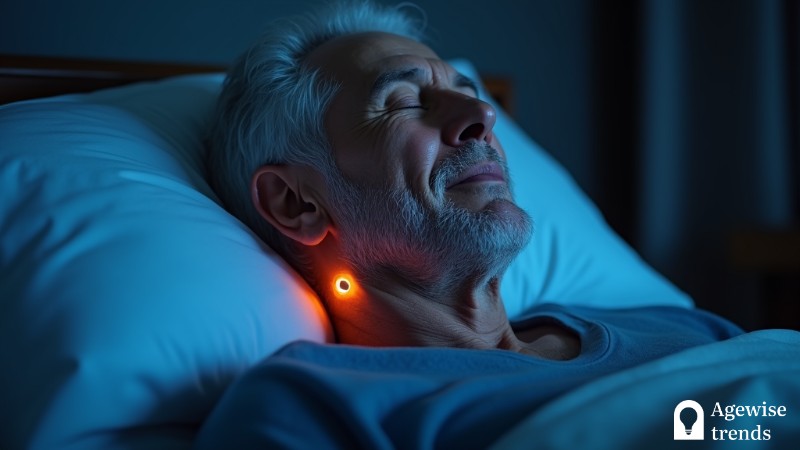Daylight saving time requires us to adjust our clocks twice a year, but our natural sleep rhythms don’t always follow suit. As the days get shorter, many people struggle to adapt their sleep patterns to the changing times.
In fact, this seemingly small change can lead to sleep loss, decreased productivity, and even an increased risk of accidents.
Understanding how to prepare for this time change can help minimize its impact on our overall health.
Key Takeaways
Adjusting to daylight saving time requires preparation and healthy sleep habits to minimize its impact on overall health.
- Gradually adjust your sleep schedule a few days before the time change by going to bed 15 minutes earlier each night.
- Establish a consistent sleep routine, including a dark, quiet, and cool bedroom environment, and limit exposure to light before bedtime.
- Incorporate healthy sleep habits such as avoiding stimulants, limiting heavy meals, and staying active during the day to improve overall sleep quality.
Understanding circadian rhythms and their importance
Our bodies operate on an internal clock known as the circadian rhythm, which regulates sleep-wake cycles, hormone production, metabolism, and other essential functions.
This approximately 24-hour cycle is influenced by external cues like light and darkness. The suprachiasmatic nucleus in the brain responds to these cues to keep our internal clock aligned with the environment.
Disruptions to this natural cycle, such as those caused by daylight saving time, can lead to sleep disturbances, mood changes, and decreased cognitive function. Maintaining a consistent circadian rhythm is crucial for good health.
Research has linked irregular sleep patterns to various health problems, including obesity, diabetes, cardiovascular disease, and depression.
The Centers for Disease Control and Prevention report that one in three adults does not get enough sleep regularly. The existing problem of inadequate sleep makes it even harder for people to adapt to new time zones and routines.
Prepare for the time change
Easing into the transition of daylight saving time can make a significant difference.
A few days before the time change, gradually adjust your sleep schedule by going to bed 15 minutes earlier each night. Doing so allows your internal clock to adapt slowly, reducing the shock of a one-hour change.
It’s also beneficial to establish a consistent sleep routine. Go to bed and wake up at the same time every day to reinforce your circadian rhythm and improve sleep quality. Remember, consistency is key. So make sure to follow your new sleeping routine even on weekends.
To improve sleep quality, create a sleep-conducive environment. Ensure your bedroom is dark, quiet, and cool. The National Sleep Foundation recommends a temperature between 60 and 67 degrees Fahrenheit for optimal sleep.
Limiting exposure to light before bed can also help. Bright light can delay the release of melatonin, the hormone that promotes sleep. If necessary, use blackout curtains to block external light and a white noise machine to mask disruptive sounds.
Dimming the lights and avoiding screens for at least an hour before bedtime can make it easier to fall asleep. If you must use electronic devices, consider using blue light filters or wearing blue light-blocking glasses.
Lastly, adjust meal times in line with your new sleep schedule. This can also assist in regulating your circadian rhythm. Eating at consistent times sends signals to your body about when to be awake and when to sleep.
Incorporate healthy sleep habits
Adopting healthy sleep habits improves your ability to cope with time changes and enhances overall sleep quality.
First, avoid stimulants like caffeine and nicotine, especially in the afternoon and evening, to prevent interference with falling asleep. Be sure to also limit heavy meals before bed to reduce the discomfort that might disrupt sleep. Your last meal for the day should be at least two to three hours before bedtime.
Staying active during the day can help you fall asleep faster and enjoy deeper sleep. While regular physical activity is beneficial, avoid vigorous exercise within three hours of bedtime, as it may be stimulating.
Also, incorporating good personal sleep hygiene practices can significantly enhance your ability to sleep well. Take a warm bath or shower before bed to relax your muscles and signal your body that it’s time to wind down.
Brush your teeth and follow a skincare routine to promote cleanliness and reinforce a consistent pre-sleep ritual. These personal care habits create a psychological association with sleep, making it easier to transition into a restful state each night.
While it’s tempting to turn to alcohol to make you feel sleepy, this can actually disrupt sleep cycles and lead to fragmented sleep. Manage stress by incorporating stress-reduction techniques instead. Consider journaling, yoga, or listening to calming music.
Go the extra mile and track your sleep patterns by keeping a sleep diary. This way, you can identify factors that improve or hinder sleep.
Manage sleep disruptions
Even with preparation, you may experience sleep disruptions during the time change. Manage these disruptions, by practicing relaxation techniques to help you fall asleep more easily.
If you can’t fall asleep, deep breathing exercises or progressive muscle relaxation can calm your mind and body. Avoid clock-watching, as constantly checking the time can increase anxiety and make it harder to fall asleep.
If you’re unable to sleep after 20 minutes, get up and engage in a quiet activity like reading under dim light until you feel sleepy.
Taking a short nap during the day if you’re feeling particularly tired can help improve alertness without interfering with nighttime sleep. Keep naps to 20–30 minutes in the early afternoon.
Special considerations for seniors
Older adults often face unique sleep challenges due to age-related changes in sleep patterns and the increased prevalence of sleep disorders. The time change can exacerbate these issues.
Addressing medical concerns is important; consult a healthcare professional to rule out or manage sleep disorders. Treatments may include lifestyle changes, therapy, or medical devices.
Enhancing the sleep environment can make a significant difference. Ensure the bedroom is comfortable and free from distractions. Consider orthopedic mattresses or pillows for added comfort.
Staying active during the day is beneficial, as exposure to natural light and physical activity can help regulate the sleep-wake cycle. Activities like walking, gardening, or tai chi can be particularly helpful.
It’s also advisable to avoid napping late in the day. Limit naps to early afternoon and keep them short to prevent interference with nighttime sleep.
When to seek professional help
If you experience persistent sleep problems that interfere with daily life, it may be time to consult a healthcare provider or a sleep specialist. Signs that you should seek professional advice include difficulty falling or staying asleep for several weeks, excessive daytime sleepiness, loud snoring or gasping during sleep, unusual movements or behaviors during sleep, or worsening of existing health conditions due to sleep problems.
Sleep disorders like insomnia, sleep apnea, restless leg syndrome, and narcolepsy require medical evaluation and treatment. Early intervention can improve sleep quality and overall health.
Adjusting to daylight saving time can be challenging, but with preparation and healthy sleep habits, you can minimize its impact.
Focus on maintaining a consistent sleep schedule, creating a restful environment, and incorporating relaxation techniques into your routine. By prioritizing sleep, you support not only your physical health but also your mental well-being.
Remember, quality sleep is essential not just during time changes but throughout the year. It enhances cognitive function, mood, and overall quality of life.
If sleep disruptions persist despite your best efforts, don’t hesitate to seek professional guidance. Taking proactive steps now can help you navigate time changes more smoothly and enjoy the long-term benefits of restful sleep.














